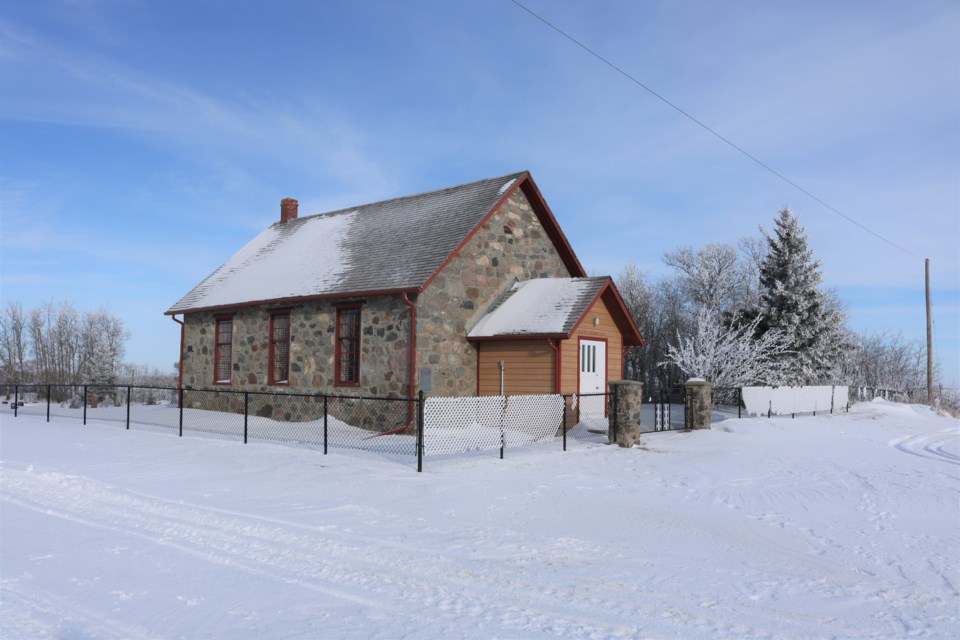If you can trace your family roots to Orkney and the Shetlands in the north of Britain the University of Edinburgh might be looking for your help.
The University is undertaking a project where they are looking to recruit 4,000 people from Orkney and Shetland into their new study ‘VIKING II’
“The VIKING II study is a large health study focussed on people with ancestry from the Orkney and Shetland Islands in the North of Scotland,” Jim Wilson principal investigator of the new VIKING II study told Yorkton This Week via email.
The Yorkton area could be the home of many of the needed volunteers considering Wilson, himself Orkney noted he has distant cousins in Yorkton.
The new study will build on previous findings at the university.
“We have been running DNA studies there for the last 15 years, beginning with the Orkney Complex Disease Study (ORCADES) and then the Viking Health Study – Shetland,” explained Wilson.
The study is specific in its focus because of its uniqueness.
“We are interested in Orcadians and Shetlanders because they have a very interesting and unique gene pool on account of their Norse Viking ancestry and a history of isolation over the last thousand years,” said Wilson. “So this means there is a limited number of different genetic lineages and thus genetic variants are often particular to the islands or at much higher frequencies there.
“The other side of the coin is that some variants are not seen at all. Some of these otherwise rare variants are medically important but we need large numbers of people to study them, as each one is individually only seen in a relatively small proportion of the population.
“Understanding these variants is important so that we can better predict the potential for certain diseases in these populations such as hereditary cancers or high cholesterol levels.
“The other side of the study is to use the questionnaire data and compare this to the DNA information to find the genes underlying disease risk factors such as obesity, smoking, etc. Finding new genes and variants illuminates the underlying biology and is the first step on the long road to new methods of diagnosing and treating diseases.”
The previous studies have resulted in a number of significant findings.
“Yes there were in fact two studies beforehand - as mentioned above, ORCADES and VIKING,” said Wilson. “These have led to over 200 peer-reviewed publications, including contributing to the discovery of (more than) 1000 new associations between genes and diseases or their risk factors.
“They have also revealed much more detail about the ancestry of the populations, allowing us to estimate the proportion of Norse blood in each place and show that the Viking ancestors mostly set sail from Hordaland in Norway and that the strongest links in Scotland were to Perthshire, Fife and Angus.”
So, what is the study hoping to show?
There are three main angles, offered Wilson.
1)������ to better understand the legacy of unique genetic variants from in the Northern Isles of Scotland and which of them relate to disease risk.
2)������ to reveal more about the mechanisms of disease by finding new genes that are associated with disease risk factors like obesity.
3)������ 3 to shine light on the relationships of Orkney and Shetland with Iceland, Ireland, the Hebrides, Mainland Scotland and Scandinavia.
There are course criteria for volunteers.
“The criterion is to have two or more grandparents from Orkney or Shetland,” said Wilson. “... Orkney in particular gave rise to a large number of indigenous names that are a good marker for Orkney ancestry as anywhere they are found you know that Orcadians were there.
“My mother's name Flett is a great example and I think I found 22 of them in the Saskatchewan phone book.
“My great grandfather's two brothers, George and Dave Flett emigrated to Sask in March 1912, along with a friend, Willie Flett and Jim & Jack Kirkness. All from Harray in Orkney. George has many descendants today and Willie had a son in Yorkton.
“This is just one story, there were clearly many others who emigrated to Sask, some with other surnames, such as Sinclair, Johnston, Harcus, Thomson, Sutherland, Tulloch which are also found in other parts of Scotland but are still very Orcadian.”
Here are some numbers for some indigenous Orkney names from the Sask phonebook:�� Flett 22, Drever 25 or more with Dreaver, Corrigall 24, Linklater 43, Isbister 40, Kirkness 7, Louttit 6, Firth 9, Folster 7, Rendall 8, Stanger 4, Work 4, Rousay 4, Marwick 3
Of course children of Orcadian women could have any surname, added Wilson.
Taking part and helping medical research is very easy as consent is given online, followed by a questionnaire. Then a saliva kit is sent out to collect a sample for DNA.
“By completing the online questionnaire they will add their data into the analyses and increase the power,” said Wilson.
“We have also extended the questionnaires compared to the previous surveys with new questions about food preferences and mood, so that we can extend the number of areas the study looks at.”
The study is funded for three years. The genetic analysis will almost certainly only happen at the end as it's more cost effective to do it that way so there won't be any findings for a while, noted Wilson.
Anyone wanting to learn more, or to take part can find the application at
��




